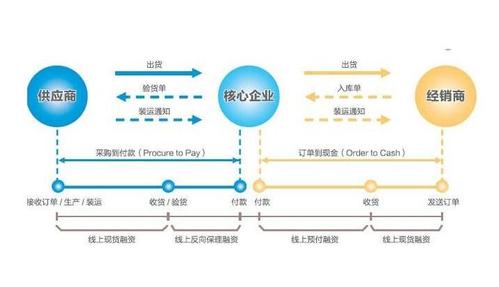Title: Understanding the Operation of Blockchain Platforms
Blockchain technology has emerged as a revolutionary concept, offering decentralized and secure solutions across various industries. Understanding how blockchain platforms operate is essential for grasping their potential benefits and applications. Let's delve into the workings of blockchain platforms and explore their key components and processes.
1. Decentralized Architecture:
At the core of blockchain platforms is their decentralized architecture. Unlike traditional centralized systems where a single authority controls data and transactions, blockchain operates on a distributed network of nodes.
Each node in the network stores a copy of the entire blockchain ledger, ensuring transparency and redundancy. This decentralization eliminates the need for intermediaries and enhances security.
2. Consensus Mechanisms:
Consensus mechanisms are protocols that enable nodes in a blockchain network to agree on the validity of transactions and maintain the integrity of the ledger.
Popular consensus mechanisms include Proof of Work (PoW), Proof of Stake (PoS), Delegated Proof of Stake (DPoS), and Practical Byzantine Fault Tolerance (PBFT). These mechanisms vary in terms of energy efficiency, scalability, and security.
3. Smart Contracts:
Smart contracts are selfexecuting contracts with the terms of the agreement directly written into code. They automate and enforce the execution of agreements on the blockchain without the need for intermediaries.
Ethereum, one of the most popular blockchain platforms, introduced smart contract functionality, enabling developers to build decentralized applications (DApps) and tokenized ecosystems.
4. Transactions and Blocks:
Transactions are the fundamental building blocks of blockchain platforms. They represent the transfer of digital assets or information between participants on the network.
Transactions are grouped into blocks, which are then added to the blockchain in a sequential and immutable manner. Miners or validators compete to validate transactions and add blocks to the chain through consensus mechanisms.
5. Immutable Ledger:
The blockchain ledger is immutable, meaning once a transaction is recorded and confirmed, it cannot be altered or deleted. This feature ensures the integrity and transparency of the transaction history.
Immutability is achieved through cryptographic hash functions, which create unique fingerprints for each block, linking them together in a chain.
6. PeertoPeer Networking:
Blockchain platforms rely on peertopeer (P2P) networking to facilitate communication and data exchange between nodes in the network.
P2P networks enable resilient and censorshipresistant communication, allowing nodes to join or leave the network dynamically without affecting its overall operation.
7. Governance Models:
Governance models define how decisions are made regarding protocol upgrades, consensus rule changes, and other network parameters.
Some blockchain platforms have decentralized governance models where stakeholders participate in decisionmaking through voting mechanisms, while others may have more centralized governance structures.
8. Use Cases and Applications:

Blockchain platforms find applications across various industries, including finance, supply chain management, healthcare, and identity verification.
Use cases range from crossborder payments and asset tokenization to transparent supply chains and decentralized identity solutions.
Conclusion:
Blockchain platforms operate on principles of decentralization, consensus, and immutability to enable secure and transparent transactions without intermediaries.
Understanding the operation of blockchain platforms is crucial for harnessing their potential and exploring innovative solutions across diverse industries.
This overview provides a foundational understanding of how blockchain platforms function, laying the groundwork for further exploration and implementation in realworld scenarios.







